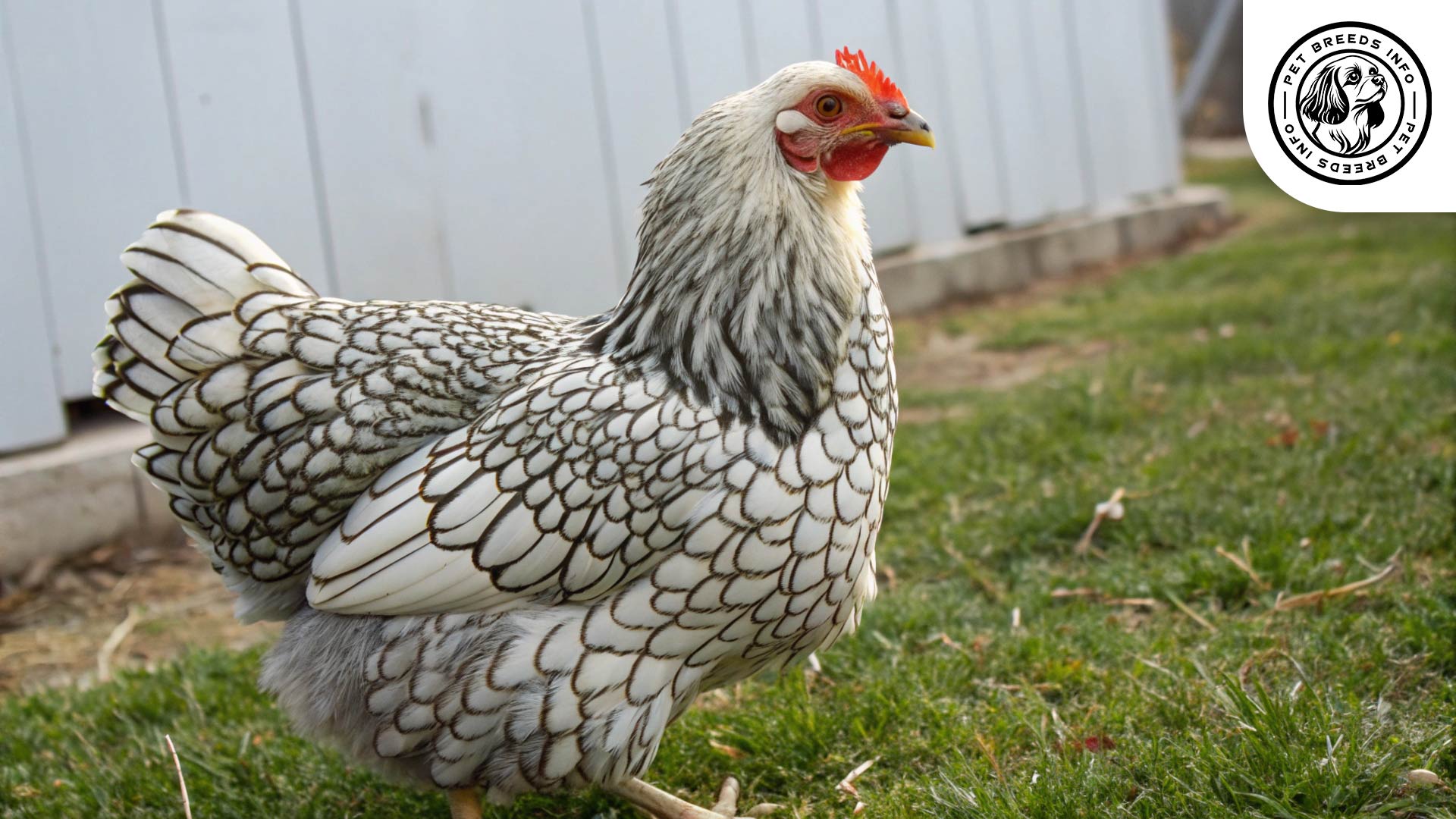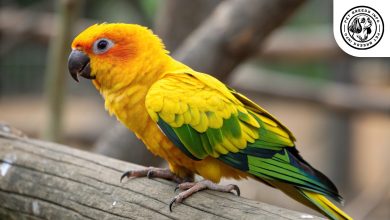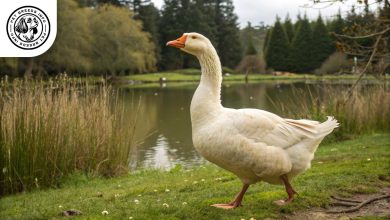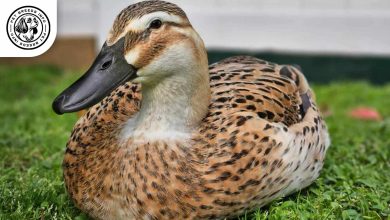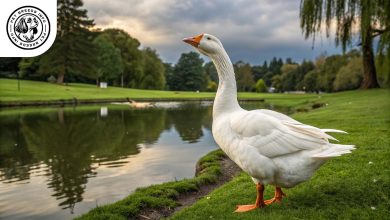Wyandotte Chicken Breed: Personality, Lifespan, Food & Care
General Introduction of the Breed
The Wyandotte Chicken is a popular dual-purpose breed known for its beauty and productivity. It is recognized by its full-bodied shape, intricate feather patterns, and friendly temperament. This breed originated in the United States in the late 19th century and was developed to create a hardy bird suitable for both meat and egg production.
Wyandottes were first recognized by the American Poultry Association in 1883. They were named after the Wyandot people, a Native American tribe. Over time, several color variations of Wyandottes have been developed, making them a favorite among poultry enthusiasts and backyard flock keepers.
Table of Contents
| Common Name: | Wyandotte Chicken |
| Scientific Name: | Not explicitly mentioned in the text. Typically it would be Gallus gallus domesticus. |
| Origin: | United States |
| Size: | Medium to large (Males: ~8.5 lbs (3.9 kg), Females: ~6.5 lbs (3 kg)) |
| Lifespan: | 6 to 10 years |
| Talking Ability: | Not applicable to chickens. |
| Colors: | Silver Laced, Gold Laced, Blue, Black, Buff, Partridge, Columbian |
| Noise Level: | Moderate |
| Social Behavior: | Social, do well in mixed flocks, generally friendly with other chickens and humans. |
Physical Characteristics
Wyandotte Chickens are medium to large-sized birds with a rounded body shape. Males typically weigh around 8.5 pounds (3.9 kg), while females average about 6.5 pounds (3 kg). They have a well-feathered body, providing good insulation in colder climates.
Their plumage comes in several color variations, including Silver Laced, Gold Laced, Blue, Black, Buff, Partridge, and Columbian. The laced varieties are particularly striking due to their beautifully outlined feather patterns.
Wyandottes have bright red wattles and combs, with a distinct rose comb that is small and close to the head, helping them withstand colder temperatures without frostbite. Their eyes are reddish-brown, and their beak is often horn-colored or yellow. They have yellow legs and clean feet with no feathering.
Read More: Sussex Chicken
Personality and Temperament
Wyandottes are known for their calm and docile nature, making them excellent for backyard flocks. They are relatively intelligent and quick learners, adapting well to various environments.
These chickens have a moderate energy level and enjoy foraging if given the space. They are not overly aggressive and get along well with other chicken breeds. While not the most affectionate breed, they tolerate human interaction, and some individuals even enjoy being handled by their owners.
Wyandottes are social birds and do well in mixed flocks. They are cold-hardy due to their dense plumage but may be sensitive to extreme heat.
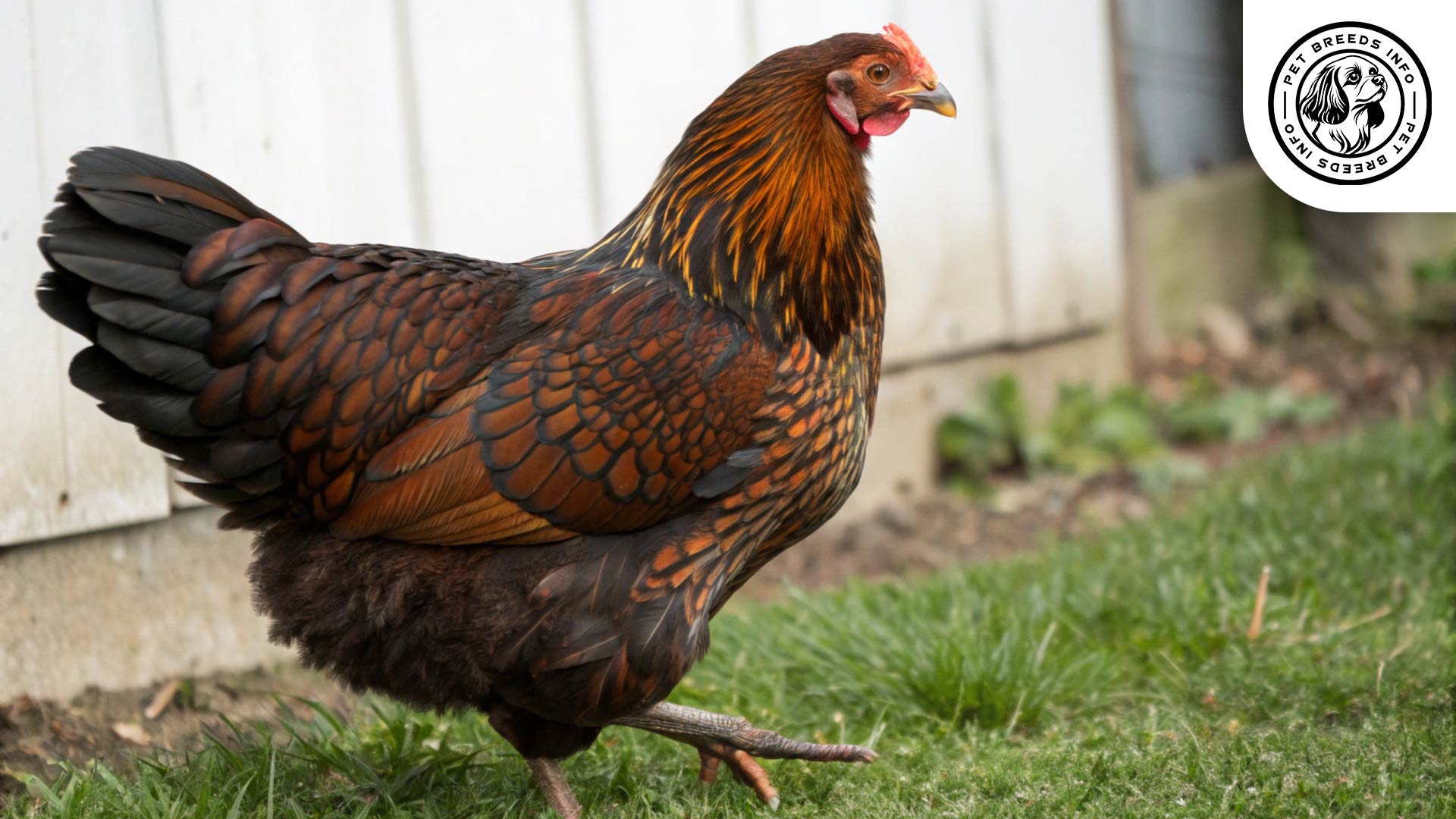
Care and Maintenance Requirements
Wyandottes are relatively low-maintenance and well-suited for both free-range and confined environments. They enjoy foraging but also adapt well to a run or coop setting.
They require a spacious, secure coop with good ventilation. Their dense feathering means they need extra care during hot weather, ensuring they have plenty of shade and fresh water.
Grooming requirements are minimal. Regular checks for parasites like mites or lice are essential. Trimming their nails and keeping their beaks in good condition will help maintain overall health. A balanced diet and access to fresh water ensure their feather condition stays optimal.
Diet and Nutrition
Wyandottes thrive on a balanced diet of quality poultry feed. Layer pellets or crumbles with around 16% protein content are ideal for egg production.
They enjoy supplemental treats such as vegetables, fruits, grains, and insects. However, certain foods, like chocolate, avocado, onions, and uncooked beans, should be avoided as they can be toxic to chickens.
Providing oyster shells or crushed eggshells helps ensure calcium intake for strong eggshells. Clean, fresh water should always be available.
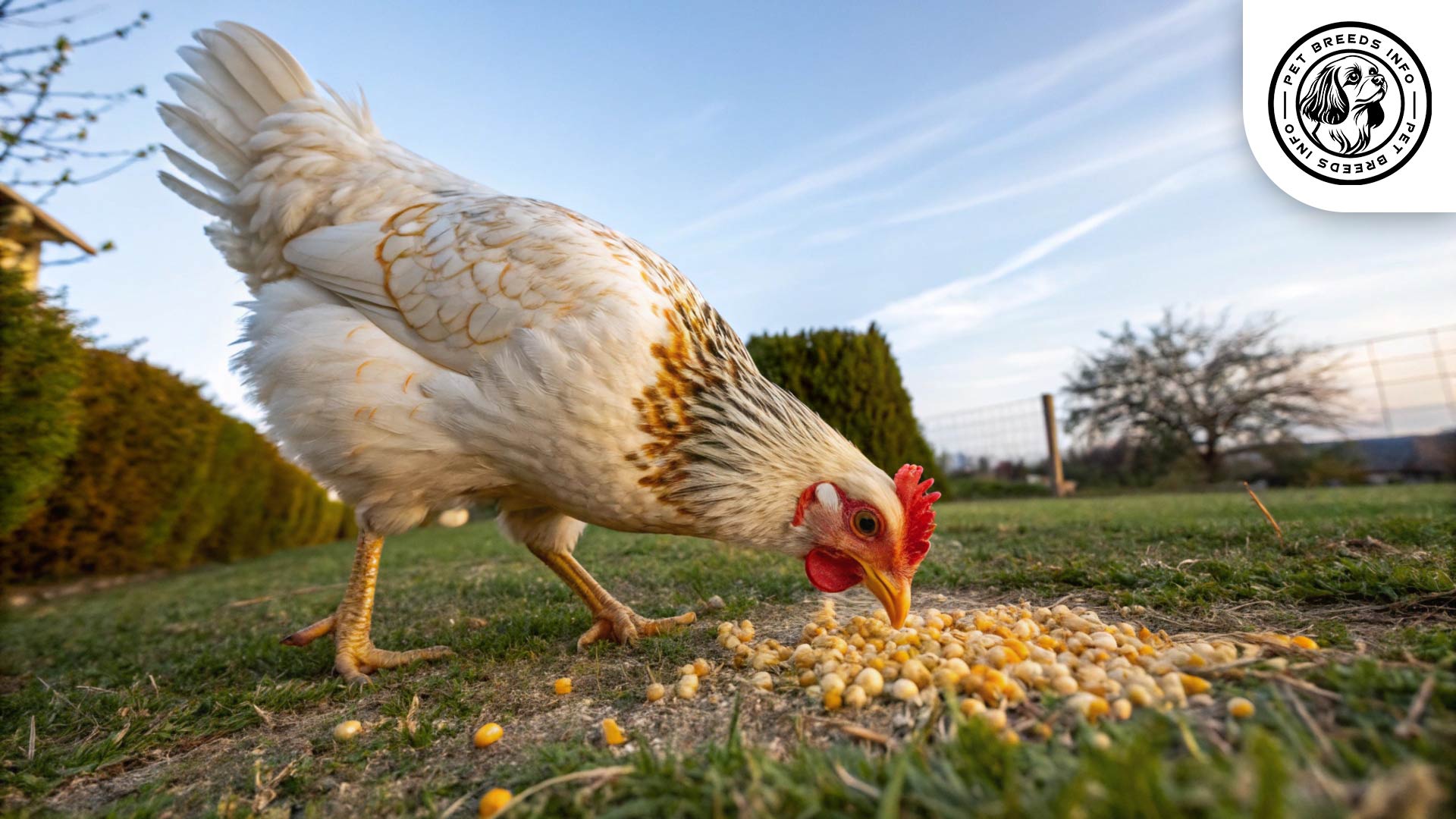
Health and Common Medical Issues
Wyandottes are generally hardy birds with strong immune systems. However, they are susceptible to common chicken health issues, including respiratory infections, lice, mites, and bumblefoot.
Regular checkups and preventive care, such as keeping the coop clean and dry, can help prevent health problems.
They have an average lifespan of 6 to 10 years, depending on their living conditions and overall care.
Read More: Red Canary Bird
Training and Behavior Management
Wyandottes are easy to manage but may be slightly independent compared to more docile breeds. They can be trained to follow basic routines, such as returning to the coop at night.
Positive reinforcement, like treats, can help motivate them. They are relatively easy to handle once accustomed to human interaction.
Introducing them to new flock members should be done gradually to avoid pecking order disputes.
Interaction with Other Animals and Humans
Wyandottes are generally friendly and can integrate well into a mixed flock. They are good with children and make excellent backyard chickens due to their calm disposition.
They are not aggressive toward other animals but should be protected from predators such as dogs, foxes, and hawks.
They are ideal for both families and small-scale poultry keepers looking for a productive yet attractive breed.
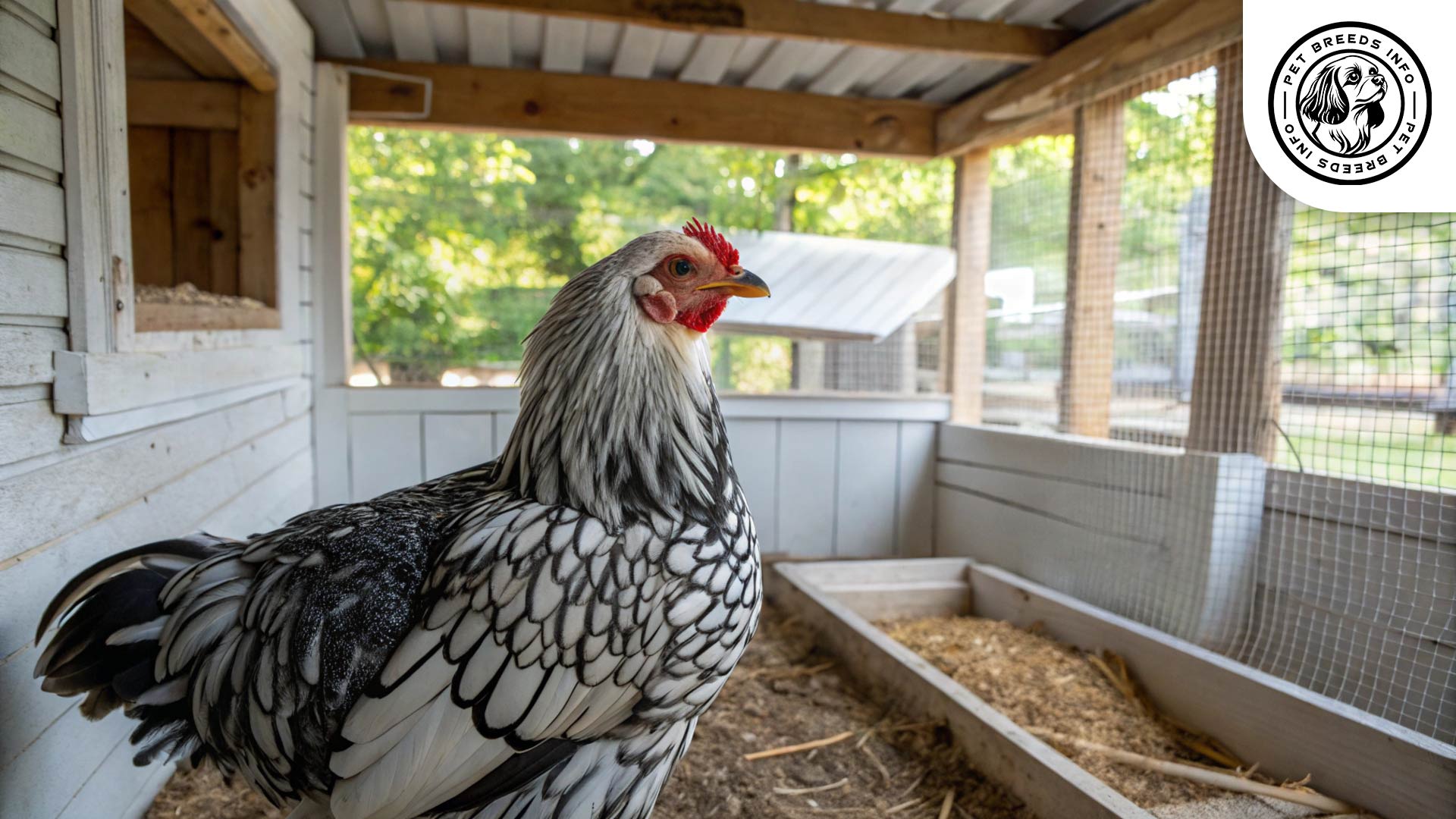
Price and Availability
Wyandotte Chickens are widely available through hatcheries, feed stores, and dedicated breeders. The price of a Wyandotte chick ranges from $3 to $6, while adult birds may cost between $15 and $40, depending on quality and coloration.
When purchasing, always choose healthy birds from reputable sources to ensure good genetics and overall health.
Conclusion and Final Thoughts
The Wyandotte Chicken is a fantastic choice for poultry enthusiasts, whether for egg production, meat, or ornamental purposes. Their beautiful feather patterns, adaptable nature, and hardiness make them one of the most popular backyard chicken breeds.
They are best suited for owners who can provide a well-maintained coop and adequate space for foraging. Their ability to tolerate cold weather makes them an excellent option for colder regions.
Before choosing Wyandottes, consider their need for space and routine care. With proper attention, they can be a rewarding addition to any flock, offering both beauty and productivity.
Read More: Senegal Parrot Bird
FAQ
What are Wyandotte chickens known for?
Wyandottes are known for their beauty, productivity (eggs and meat), intricate feather patterns, and friendly temperament.
Are Wyandotte chickens good for backyard flocks?
Yes, their calm nature, adaptability, and moderate size make them excellent for backyard flocks.
How cold-hardy are Wyandottes?
They are quite cold-hardy due to their dense plumage and small rose comb.
What do Wyandotte chickens eat?
They thrive on a balanced diet of quality poultry feed and enjoy supplemental treats like vegetables, fruits, grains, and insects.
What is the typical lifespan of a Wyandotte chicken?
Their average lifespan is 6 to 10 years, depending on their care and living conditions.
